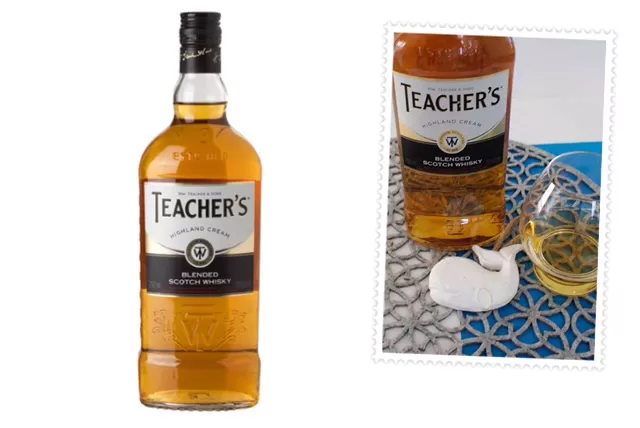
Welcome back to the second instalment of my series on affordable drams. Today’s bottle is none other than Teacher’s blended Scotch whisky. If you missed Part 1, where I delved into the world of budget-friendly drams, you might want to catch up here with the Jim Beam bourbon. But for now, let’s pour ourselves a dram and dive right into the world of Teacher’s whisky.
My first encounter with Teacher’s whisky was on one of our trips to India, where our friend consistently stocked up on this blend. It’s safe to say that Teacher’s whisky has quite the following in India, and for good reason. It’s affordable and trendy, making it a favourite among many whisky enthusiasts.
But what exactly is Teacher’s Highland Cream blended Scotch whisky? It’s one of the more affordable blends out there, and when I spotted it on the shelves of my local liquor store, I couldn’t resist giving it a try.
Also Read: Ballantine’s 7 yo Bourbon Finish Whisky
The story of Teacher’s whisky dates back to around 1830, when William Teacher founded it. He began selling his blends from his wife’s grocery store in Glasgow. It wasn’t until 1863 that he perfected the Teacher’s Highland Cream blend and the brand was officially registered in 1884. After William Teacher’s passing, his two sons, William Jr. and Adam, took the company’s reins.
To ensure a steady supply of high-quality malt whisky for Teacher’s Highland Cream, Adam Teacher founded the Ardmore distillery and acquired the Glendronach distillery. With time, Teacher’s Whisky and the Ardmore distillery attracted the attention of various buyers, leading to ownership changes.
In 2014, Beam Inc. acquired Ardmore, along with the Laphroaig distillery and the Teacher’s brand. Later on, Beam Inc. was purchased by Suntory, forming Beam Suntory. As for Glendronach, it found its way into the Brown-Forman portfolio.
The heart and soul of Teacher’s still emanate from the Ardmore distillery, known for its peat-smoked malt. The range includes the Teacher’s 50 year old to celebrate India’s 50-year independence, Teacher’s Origin to honour the founder, and Teacher’s 25 year old whisky.
Notably, Teacher’s blended whisky is exported to over 100 countries. Now, let’s get down to the nitty-gritty of the whisky itself:
Teacher’s Highland Cream Blended Whisky Review
 ABV: 43%
ABV: 43%
COLOUR: Dark gold
NOSE: When you give Teacher’s blended Scotch whisky a sniff, you’ll pick up hints of smoke, gentle earthy peat, raw alcohol, vanilla, and malty notes. The nose is subtle and not overly sophisticated.
PALATE: The palate packs more punch than the nose suggests, with notes of smoke, peat, and a touch of pepper. The fruity sweetness emerges after adding a bit of water, which also tames the raw alcohol notes but tempers the smoke and peat. It’s not the most complex of drinks, but it has its moments.
FINISH: The finish is long and spicy, with hints of pepper lingering on the palate.
RATING: GOOD
According to some research, Jim Murray, the whisky guru, loves this blend and rated it a 90 in his Whisky Bible. However, personal preferences vary, and after a busy day or two, I found that Teacher’s whisky didn’t tickle my taste buds the way I’d hoped. I revisited it a few days later, but it still didn’t win me over.
Considering the price point, I wasn’t expecting the most complex of whiskies. Still, for my palate, Teacher’shas a bit too much of that raw alcohol edge. It’s a one-glass wonder, and I might not even finish the glass I poured.
I might be overcritical. So many people absolutely love this release. It is an easy-drinking whisky that won’t empty your wallet. Give it a try; it is just a click away on Amazon.
Update:I decided to have fun over the weekend and conducted a taste-off between Teacher’s and Ballantine’s Finest whisky, both budget-friendly blends. Stay tuned for the results; it made for an enjoyable afternoon of exploration on the patio.
Disclaimer: As an Amazon Associate, I earn from qualifying purchases. I may receive a commission if you click on a link and make a purchase.
What budget blend should I try next?
Related Article: Whyte and Mackay Triple Matured Whisky